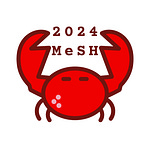NOTE: Apologies for the repost. We discovered a problem with our RSS feed. Hopefully this will fix things. -Tracy
In this episode, Carrie and Tracy are joined by Zahra Premji, otherwise known as @ZapTheLibrarian if you are a part of the #medlibs community X, The Platform Formerly Known as Twitter.
Hear about Zahra’s path to medical librarianship and supporting evidence synthesis. She loved research so much, she just didn’t know when to stop — and as it turned out, she is really good at it!
She’s now leading the Canadian Evidence Synthesis Institute, which is based on the Institute of Museum and Library Services-funded Evidence Synthesis Institute at the University of Minnesota.
Zahra notes that she really enjoys the process of searching and the thrill of the chase of finding relevant articles. She’s also not remotely shy about her preference for the Ovid platform. (EBSCO, if you’re reading, we’re sorry!)
What else? Oh yeah, “searching is addictive,” she says.
Still, there are challenges to supporting evidence synthesis. Don’t look at our searches from three years (or three weeks) ago, because we’re constantly learning and trying to stay current. Also, we need time. It’s important to sit with a topic to come up with a good search, and having to rush means there are going to be mistakes.
Zahra and Tracy discuss different methods of doing a seed paper analysis. Zahra (and her co-contributor, Alix Hayden) developed a template, a version of which is posted on OSF. Carrie, on the other hand, is a PubReminer fan. And don’t discount some of the featured tools in the SR Accelerator suite.
She won’t toot her horn, so Carrie does it for her: Zahra’s a co-author on this recent paper published in Research Synthesis Methods. Are those search strategies really “available upon request”? Apparently, not always. Take a look at the amazing and crabby poster that preceded the published article.
Neilson, C. J., & Premji, Z. (2023). A study of search strategy availability statements and sharing practices for systematic reviews: Ask and you might receive. Research Synthesis Methods, 10.1002/jrsm.1696. Advance online publication. https://doi.org/10.1002/jrsm.1696
Zahra remembered that Carrie recently collaborated with Melissa Rethlefsen on a paper about reproducibility (Melissa recently offered a webinar on it here).
Rethlefsen, M. L., Brigham, T. J., Price, C., Moher, D., Bouter, L. M., Kirkham, J. J., Schroter, S., & Zeegers, M. P. (2023). Systematic review search strategies are poorly reported and not reproducible: a cross-sectional metaresearch study. Journal of Clinical Epidemiology, 166. https://doi.org/10.1016/j.jclinepi.2023.111229
We wrap up with a shout-out to the Canadian Health Libraries Association and its sometimes-overlap with MLA.
We want to thank Zahra for being a wonderfully engaging guest, and thank all of our listeners for your continued listening support of Medlibs Miscellany.

















Share this post